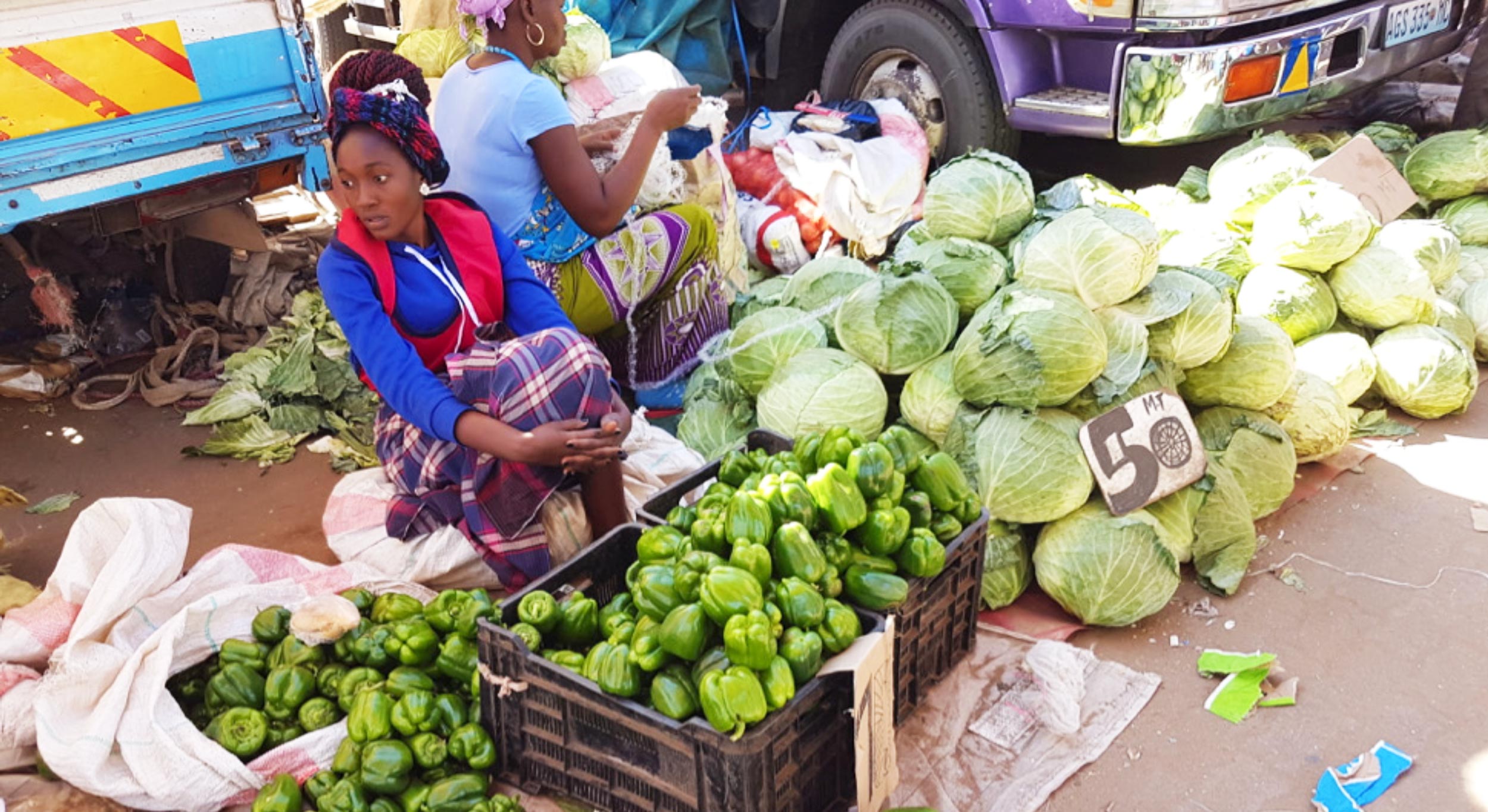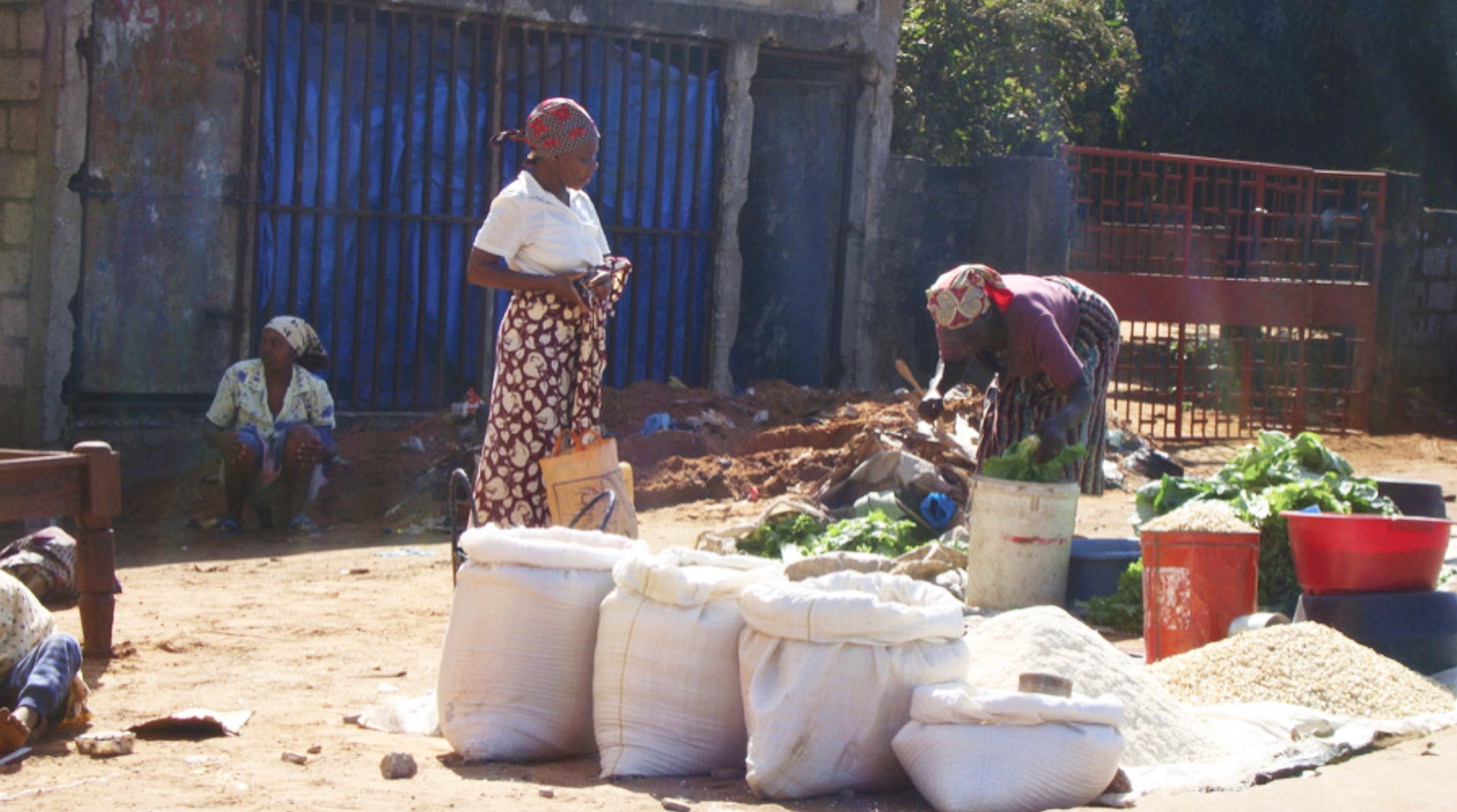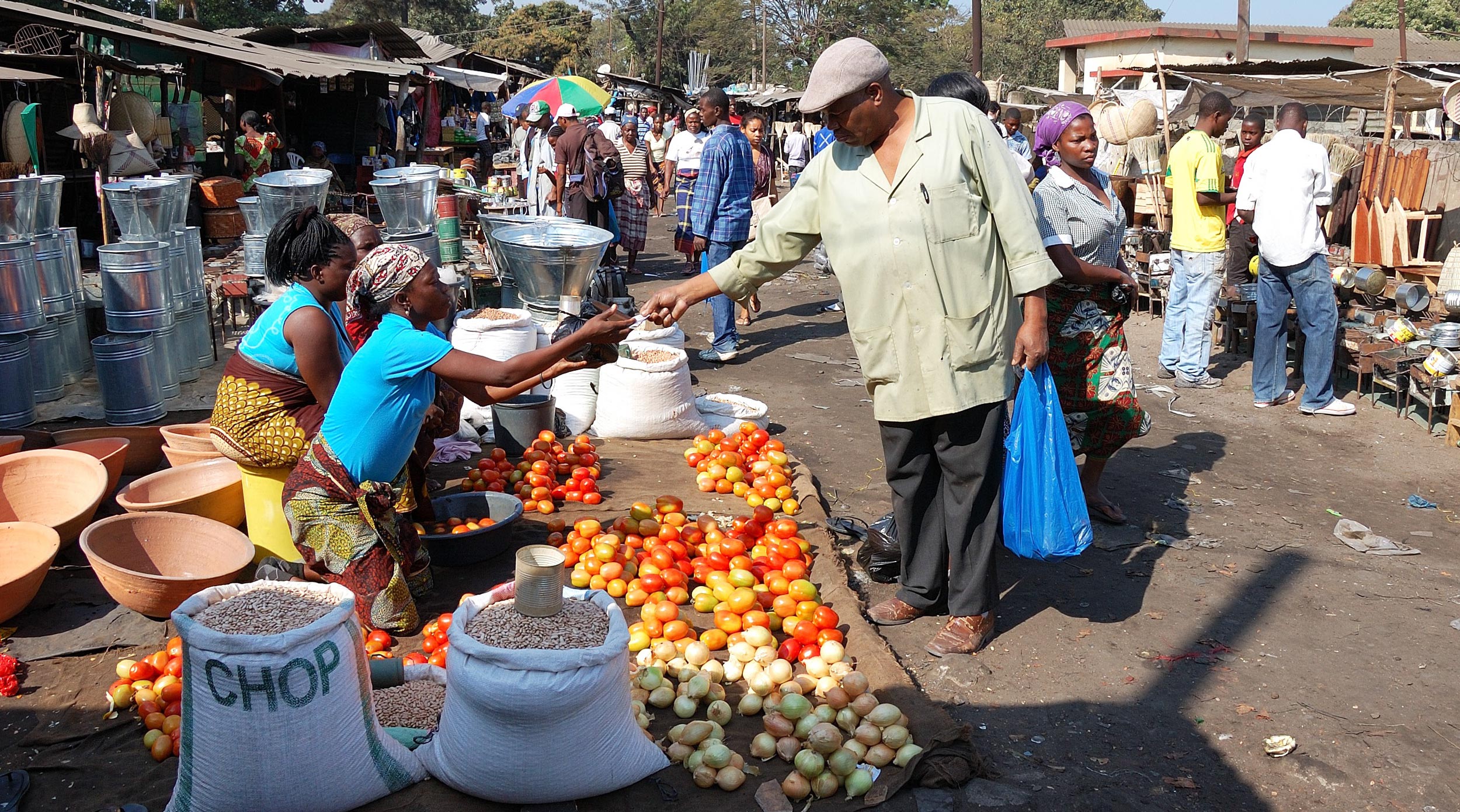MAPUTO, MOZAMBIQUE
Maputo is the rapidly growing capital of Mozambique. The city has an estimated population size of 1.2 million with a high population density. Maputo has a formal downtown core, representing the historical city centre, which is now the central business district. The informal areas of the city are spread to the north and west of the downtown core.
This formal/informal distinction also characterizes the food system in the city. Within Maputo, supermarkets, informal shops, urban agriculture and rural food transfers all contribute to the definition of the city’s food system. Together these characteristics make Maputo a vibrant and dynamic example of how the formal and the informal can give rise to a unique food system.

RESEARCH on MAPUTO
HCP REPORTS
PAPERS
Opening Access to Urban Food Security Data in Africa from the Hungry Cities Partnership
The Hungry Cities Partnership (HCP) initiated a 7-year programme of food system research in eight cities of the Global South in January 2015: Mexico City, Mexico; Kingston, Jamaica; Windhoek, Namibia; Cape Town, South Africa; Maputo, Mozambique; Nairobi, Kenya; Bangalore, India; and Nanjing, China. This paper describes the research process in the four African cities of Cape Town, Maputo, Nairobi, and Windhoek. The HCP data provide rich and context-specific information useful in avoiding generalizations in theory and inserting a Southern and ...
Towards a New Food Security Index for Urban Household Food Security
The multidimensionality of food security can confound both statistical modelling and clear policy narratives. That complexity can become amplified in urban areas where food security is often a function of both local and global factors. Rather than focusing on one dimension of food security metrics, this investigation proposes a method for building an index of urban household food access, utilization and stability. The performance of this index is compared across three aggregation methods using household surveys collected from five cities ...
Assessing Supermarket Patronage in Matola, Mozambique
As an indicator of a broader nutrition transition, the supermarketization of urban food systems in the Global South has become a growing area of research interest. While the rising dominance of supermarkets in urban food systems has been noted in several primate cities in the Global South, there have been few investigations into the spatial and demographic characteristics that may govern the patronage of supermarkets in smaller secondary cities. This paper assesses the supermarketization trend via an investigation of supermarket ...
The Role of Infrastructure Access in Urban Household Vulnerability to Food Insecurity in Southern Cities
The geographical concentration of poverty in informal neighbourhoods across cities is a common socio-economic feature of the urban form. Many of these impoverished areas also suffer from limited access to urban infrastructure. Given the expense and planning necessary to develop urban infrastructure, these areas are socially vulnerable in part because of their exclusion from urban master plans. This vulnerability is made more severe by the knock-on impacts of limited infrastructure access on other aspects of human insecurity. This paper uses ...
Urban Food Governance Perspectives in Changing African and Southern Cities
The key urban food governance question in African and other Southern cities is understanding the role that appropriate infrastructures could play in delivering positive outcomes in the urban food system. This discussion paper looks at urban food governance needs in African cities and reflects on the governance actions required in order to respond to wider food system changes and challenges. It argues that food in the African city is a public good and discusses the role that a state (and ...
Motivations and Challenges of Youth Entrepreneurs in Maputo’s Food Markets
Amidst a growing youth unemployment crisis spreading across Sub-Saharan Africa, there is a pressing need for effective policy intervention, based on sound research, to support young people’s entry into labour markets. As urban labour markets continue to catalyze the growth of national economies in the Global South, the inclusion of youth entrepreneurs in the food retail sector in Maputo has become an important but largely unstudied phenomenon. This paper assesses the demographic and entrepreneurial characteristics of this population through a ...
Governing the Informal Food Sector in Cities of the Global South
The role of the informal food sector in the urban food system cannot be appreciated or understood without the compilation and analysis of systematic and representative data on the activities of informal enterprises across a city and along food supply chains outside it. At present, there are significant gaps in the knowledge base about the character, operation, and roles of the informal food sector; a pre-requisite for sound and supportive governance. This paper presents evidence on the relative importance of ...
Predictors of Household Food Insecurity in Maputo and Matola, Mozambique
The rapid growth of Maputo and Matola (neighbouring cities in Southern Mozambique) has dramatically changed each city’s demographic and food insecurity profile. Previous research in Maputo indicates that household access to infrastructure plays an important role in determining vulnerability to food insecurity. This paper investigates (a) whether this relationship is also true of Matola and (b) whether the demographic composition of households plays a role in defining vulnerability to food insecurity in either city. Using household survey data collected by ...
The Food Security Implications of Gendered Access to Education and Employment in Maputo
The multiple linkages between gender and household food security in cities have been observed in diverse settings, at multiple scales, and through a variety of disciplinary lenses. The Hungry Cities Partnership is rooted in the importance of inclusive growth of cities, which includes a fundamental concern with gender-based injustices that reduce inclusivity, sustainability and food security by underpinning structural poverty. This discussion paper is motivated by the gap in policy-ready quantitative data needed to identify the ways in which gender ...
Compounding Vulnerability: A Model of Urban Household Food Security
The efficiency of the infrastructure systems in cities will define the extent to which dystopic visions of urban futures become a reality. At the level of the individual household, vulnerability to hazards in cities is defined, in part, by the ability to access essential resources and services. This discussion paper proposes a model to help explain the relationship between access to urban infrastructure systems and household vulnerability to food insecurity. Food access in cities is primarily achieved through food purchases, ...
The Hungry Cities Food Purchases Matrix: A Measure of Urban Household Food Security and Food System Interactions
Recent theoretical work has suggested that urban food security is the result of food system interactions. This work highlights the challenge of assessing household-level food insecurity and relating it to the broader food system. One priority is to develop food security metrics that incorporate household inter-actions with the food system retail environment. The Hungry Cities Food Purchases Matrix (HCFPM) is one such metric that has been developed for situating household food sourcing behaviour within the urban food system. The matrix ...
Comparing Household Food Security in Cities of the Global South through a Gender Lens
Understanding the determinants of urban food insecurity requires sensitivity to local cultural contexts and taking into account a globally relevant framework for analysis. A gender lens is amenable to this kind of analysis because it is rooted in local configurations of households, livelihoods and consumption patterns, while also being animated by a longstanding global effort to create a world in which men and women are equal. This discussion paper is aimed at academic researchers and development practitioners concerned with urban ...
Household Food Security and Access to Medical Care in Maputo, Mozambique
The relationship between household access to medical care and food security is a potentially circuitous and challenging relationship to model. This discussion paper uses multiple modelling techniques to determine the quality of the relationships between these variables using household survey data collected by the Hungry Cities Partnership in 2014 in Maputo, Mozambique. The results of the investigation are framed according to the Sustainable Livelihood Framework and indicate a predictive relationship between household food security status and consistent household medical care ...
Hungry Cities of the Global South
The recent inclusion of an urban Sustainable Development Goal in the Post-2015 UN Development Agenda represents an important acknowledgement of the reality of global urbanization and the many social, economic, infrastructural and political challenges posed by the human transition to a predomi- nantly urban world. However, while the SDG provides goals for housing, transportation, land use, cultural heritage and disaster risk prevention, food is not mentioned at all. This discussion paper aims to correct this unfortunate omission by reviewing the ...
POLICY BRIEFS
Demand: The Forgotten Side of Informal Economy Policy
Policymakers who seek to support informal economic activity too often rely on supply-side solutions that fail to address the central needs of the urban poor. Efforts should instead focus on the alleviation of poverty to ensure that potential customers have the economic means to buy sufficient food to meet their needs. Governments must prioritize the promotion of adequate formal employment opportunities to ensure that the urban poor have livelihood options beyond informality.
An Urban Perspective on Food Security in the Global South
The global food security policy community should reorient its actions on food security in the Global South to consider the urban food consumer. Since it is currently working with value chains in rural areas, we recommend that this view is extended into urban areas. Specifically, global and multilateral actors and national and local governments need to prioritize an urban food security agenda by engaging in and strengthening intra-urban value chains. This will have the dual result of lowering prices and ...
BOOK CHAPTER
None available
THESES
The Impact of Infrastructure on Urban Household Vulnerability to Food Security in Maputo
- PhD Thesis - Infrastructure is an important foundation for urban sustainability. Infrastructure includes both a system of institutions like banks and hospitals (known as social infrastructure) and a network of physical utilities like water and power grids (known as physical infrastructure). Social infrastructure allows households to access social services while physical infrastructure allows households to access physical resources. A ...
JOURNAL ARTICLES
The Inclusion of Young Entrepreneurs in the City of Maputo’s Food Markets
The City of Maputo’s food system comprises a diversity of retailers providing access to food from both domestic and international suppliers. Food markets, whether formal and informal, are the most commonly accessed food source within the city and provide an important source of employment for city residents. As urban labour markets continue to catalyze the growth of national economies in the Global South, the inclusion of young entrepreneurs in the food retail sector in Maputo has become an important but ...
Family Structure and Severe Food Insecurity in Maputo and Matola, Mozambique
The rapid growth of Maputo and Matola (neighbouring cities in Mozambique) has dramatically shifted the vulnerability profiles of these cities. Poor neighbourhoods across these two cities may now face the prospect of becoming food deserts. Scholars have defined African urban food deserts by the co-occurrence of poverty and food insecurity. This study aims to assess the assumed relationship between resource poverty and food insecurity in the African urban food desert concept and to assess the contribution of household demographics to ...
Urban Household Food Security in China and Mozambique: A Gender-Based Comparative Approach
International comparison of development indicators is a perennial challenge in global development studies. The challenge is especially difficult when measuring urban household food security using experience-based metrics that are influenced by countless contextual factors. This article presents a gender-based analysis of household food security surveys conducted in Nanjing, China and Maputo, Mozambique. The analysis demonstrates the value of a gender lens for understanding the intersecting household characteristics associated with urban food insecurity. While Maputo had much higher food insecurity overall, ...
The Hungry Cities Food Purchases Matrix: Household Food Sourcing and Food System Interaction
Urban food insecurity is partly the result of interactions between households and the broader food system. There is considerable discussion and debate on the most appropriate measures of household food insecurity but very little on how to quantify interactions between households and the system. One priority is to develop food security metrics that incorporate household interactions with the food retail environment. The Hungry Cities Food Purchases Matrix (HCFPM) is one such metric developed for relating household food sourcing behaviour to ...
Informal Entrepreneurship and Cross-Border Trade Between Mozambique and South Africa
Informal cross-border trading is an essential part of Maputo’s informal economy. This paper presents the results of a 2014 SAMP survey of informal entrepreneurs involved in cross-border trade between Johannesburg and Maputo. A questionnaire was administered to a sample of 403 informal traders in 7 markets in Maputo. The study showed that most of the entrepreneurs began their business activities as vendors and only later moved into cross-border trading. The overwhelming majority used their personal savings to start their business ...
Policy Responses to Informality in Urban Africa: The Example of Maputo, Mozambique
In the global South informality constitutes one of the leading issues for urban policy makers. The planning challenges around informality are particularly relevant in urban Africa as most Africans make their livelihoods in the informal economy. This paper examines issues of state policy responses to informality through the lens of street traders. Under scrutiny are policy responses towards street trading in Mozambique’s capital, Maputo, a city that has experienced the advance of informalization. It is argued that the dominant approach ...
Hungry Cities: A Critical Review of Urban Food Security Research in Sub-Saharan African Cities
There has been renewed interest in the issue of food in cities in sub-Saharan Africa. A similar renewal has been noted in the North American and European contexts. However, the political, practical, and ideological starting points of these research endeavors are quite different. This paper presents a historical and political lens through which the trajectories of urban food research in sub-Saharan African can be understood. It begins with a historical analysis of the field and uses this to explain why ...



